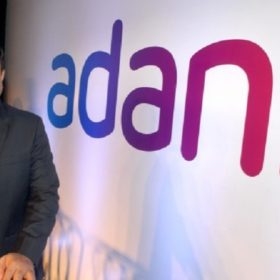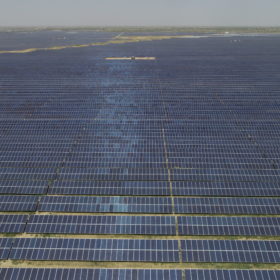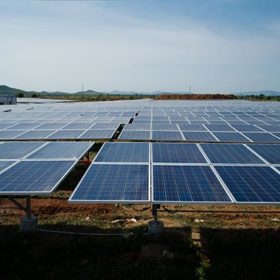Tata Power consolidated PAT up 36% in September quarter
The integrated power producer’s revenue from operations increased 18% to INR 9,810 crore from INR 8,290 crore in the same period last fiscal year.
Adani Green Energy’s operational capacity grew by 93% YoY to 5,410 MW
The renewable energy developer’s operational capacity increased to 5,410 MW (4,763 MW solar and 647 MW wind) as of September 30, 2021, a 93% growth from 2,800 MW in September last year. Much of this capacity addition during the year was through the acquisition of operational solar assets.
Innovative financing can help India achieve solar energy goals
Funding avenues available to solar developers range from green bonds and multilateral development bank loans to infrastructure investment trusts.
Reliance offers INR 375/share to raise 25.9% stake in Sterling and Wilson Solar
The new energy arm of Reliance Industries Limited has made an open offer to acquire 4,91,37,420 shares from Sterling and Wilson Solar’ public shareholders at a price of INR 375 per share.
India added 8.8 GW of solar in the first nine months of 2021
The solar capacity addition for the calendar year 2021 is expected to touch 14 GW (11 GW utility scale and 3 GW rooftop) if the third Covid wave does not strike between November and December.
Tender launched for 50 GWh battery cell output with subsidy support
Global bids are invited to set up giga-scale advanced-chemistry battery cell manufacturing units in India under the government’s production-linked incentive scheme. To be eligible for the government subsidy, the bidder would have to commit to setting up a minimum of 5 GWh capacity. Bidding is open until December 31.
Solar tariffs could rise to INR2.60/kWh in the next fiscal year
The recent increase in the goods and services tax applied to solar cells and modules, from 5% to 12%, coupled with a planned 40% customs duty on panel imports, is set to increase project costs for developers.
Gujarat tenders 60 MW of solar EPC work
Bids are invited to install 60 MW of grid-connected solar projects around various substations of the Gujarat Energy Transmission Corporation Limited in the Kachchh district.
Jindal India Solar, Shirdi Sai, Reliance and Adani the lowest bidders in production-linked solar tender
The four companies will each have half of their planned 4 GW annual production of polysilicon-to-module output subsidized by public funds.
Tata Power crosses 1,000 EV charging stations milestone
Tata Power has become India’s largest electric vehicle (EV) charging solutions provider with the deployment of over 1,000 EV charging stations in the public domain.
















